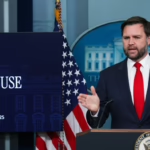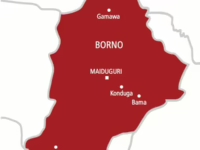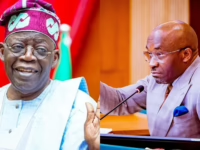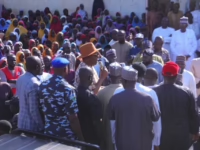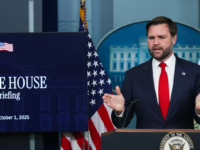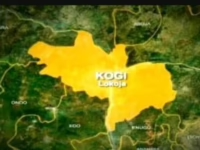On Tuesday, the Benue State Government officially introduced its much-anticipated Internally Displaced Persons (IDP) Policy, a landmark initiative praised by civil society and humanitarian organizations as a transformative step for communities affected by conflict and natural disasters. This comprehensive strategy aims to transition the state’s approach from temporary relief efforts to sustainable solutions that restore dignity, livelihoods, and long-term stability for thousands displaced by insecurity and environmental challenges.
Presented by Governor Rev. Fr. Dr. Hyacinth Iormem Alia and represented at the event by Deputy Governor Barr. Dr. Sam Odeomni, the policy places Benue among a growing number of Nigerian subnational governments formalizing frameworks to prevent displacement, safeguard displaced populations, and facilitate their voluntary, safe, and sustainable return, local integration, or resettlement. The Commissioner for Humanitarian Affairs and Disaster Management, Aondowase Kunde, emphasized that this policy transcends bureaucratic formalities, serving instead as a social pact between the government, aid agencies, and displaced communities, centering affected individuals in all interventions.
Benue has long grappled with repeated displacement caused by communal conflicts, clashes between farmers and herders, sporadic violence, and environmental shocks. These crises have forced entire communities to abandon their homes and farmlands, seeking refuge in camps, public facilities, and host communities across various local government areas. While government and humanitarian actors have consistently provided emergency food aid, temporary shelter, and medical assistance, the cycle of displacement has persisted stubbornly.
Recognizing that reactive relief alone cannot break this cycle, the Alia administration designed this policy as a strategic pathway to resolve protracted displacement in the state. “Today’s launch marks a commitment to ending long-term displacement in Benue,” stated Deputy Governor Barr. Dr. Sam Odeomni, underscoring the administration’s vision to prioritize return, recovery, and resilience in all future interventions.
Although the full policy document details technical guidelines and institutional duties, the launch highlighted several key commitments:
Centering the needs of displaced persons. The policy pledges to prioritize the expressed needs, safety, and rights of IDPs, ensuring their active participation in decision-making processes and transparent access to information regarding assistance and durable solutions.
Defined institutional responsibilities. By delineating clear roles among ministries, agencies, and local governments-with the State Emergency Management Agency (SEMA) and the Ministry of Humanitarian Affairs and Disaster Management at the helm-the policy aims to enhance coordination, reduce fragmentation, and increase accountability.
Connecting relief efforts to economic recovery. Moving beyond mere distribution of aid, the policy stresses rapid investment in livelihood restoration and economic empowerment. Officials cited ongoing projects such as the allocation of land for pilot agricultural farms and targeted cash transfers, designed to help displaced families rebuild income sources and achieve food security.
Framework for sustainable solutions. The policy establishes clear criteria and safeguards for voluntary, informed, and safe returns, local integration, and resettlement. It mandates that reintegration support-including housing repairs, land restitution, and psychosocial services-be in place before large-scale movements occur. This approach aligns with international best practices and complements efforts by global agencies operating in Nigeria.
The launch was marked by collaboration, with humanitarian groups such as Save the Children, international bodies, and local NGOs in attendance, all pledging ongoing partnership. Representatives from Save the Children described the policy as a vital step toward formalizing cooperation, enabling more predictable programming like cash assistance and protection services that have already benefited vulnerable households in Benue.
Success will depend heavily on robust partnerships with the federal government, multilateral organizations, and grassroots civil society. Efforts to broaden civic engagement include registering and coordinating numerous local NGOs focused on IDP support, significantly expanding the network of organizations providing frontline assistance.
State officials pointed to early, concrete achievements as evidence that the policy is grounded in practical action rather than mere rhetoric. For instance, SEMA reported that 15 households have been successfully reintegrated into the Tyo-Mu community in Makurdi through pilot programs involving consultations and tailored support packages aimed at stabilizing their return.
Additionally, the Alia administration has secured hundreds of hectares of land to establish demonstration farms, an initiative intended to create jobs, enhance food security, and reduce the pressure on displaced families to return prematurely to unsafe areas.
This pragmatic approach follows a deliberate sequence: identifying willing returnees, ensuring security and essential services at origin or resettlement sites, restoring livelihoods and legal land access, and then scaling up the model. Such a strategy is designed to minimize the risk of renewed displacement and rebuild trust within affected communities.
Civil society participants at the launch emphasized the necessity of strong monitoring systems, independent oversight, and transparent reporting to prevent the policy from being exploited for political favoritism or selective aid distribution.
They advocated for embedding third-party monitoring, community feedback mechanisms, and clear complaint and redress procedures into the policy’s implementation to ensure fairness and foster trust.
The introduction of the Benue State IDP Policy represents a pivotal advancement in addressing recurrent displacement challenges. By institutionalizing commitments to protection, participation, and livelihood restoration-and signaling a shift from episodic emergency relief to strategic, durable solutions-the Alia administration has charted a course to alleviate the human and economic burdens of displacement throughout Benue.
James Msughter Adzande
Senior Special Assistant to the Governor on Media (Cabinet Office)
Realizing the policy’s promise will require unwavering political commitment, reliable funding, credible partnerships, and the gradual rebuilding of trust between communities and the institutions serving them. For displaced residents of Benue, Governor Alia’s vision offers more than survival-it offers the hope of returning home, rebuilding livelihoods, and living with dignity.



